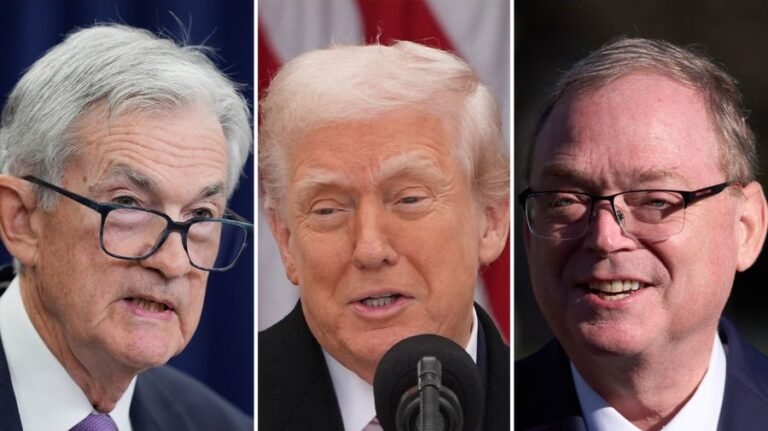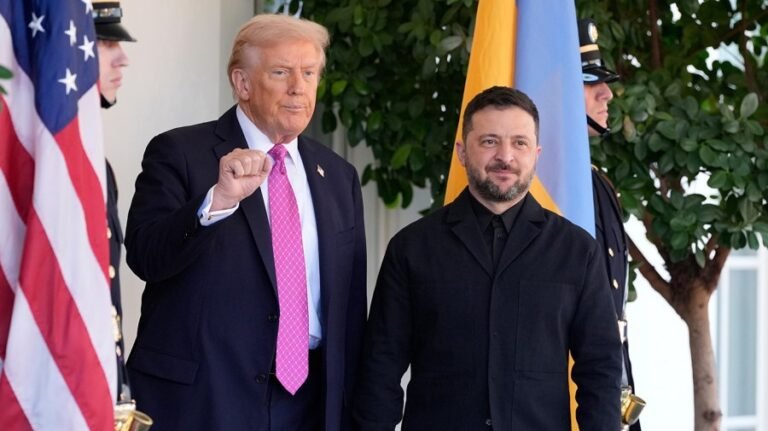
After gutting our principal development, humanitarian and peacebuilding institutions, the Trump administration is now pushing to close another of our most powerful institutions on the frontlines of a growing global information war: the Voice of America.
The timing for its closure could not be worse. Disinformation campaigns targeting African information systems have surged nearly fourfold since 2022, with Russia and China leading a systematic assault.
According to the Africa Center for Strategic Studies, 189 documented disinformation campaigns now target Africa — nearly quadruple the number reported in 2022. These campaigns have triggered “destabilizing and antidemocratic consequences,” all of which undermine U.S. interests on the continent.
At least 39 African countries have been targeted with foreign disinformation, with half facing three or more campaigns.
Russia has emerged as the primary architect of this disinformation offensive, sponsoring 80 documented campaigns across more than 22 countries in Africa. Perhaps nowhere are the effects of these campaigns on American interests so visible as in Niger, a country then-Secretary of State Blinken praised as “a model of resilience” on a first-ever visit to the Sahelian state.
Only months later, an army coup would topple the country’s democratically elected leader with the help of Russian networks.
In the months following, content about Niger spiked by 6,645 percent on Russian state media and Wagner Telegram channels and included narratives about Western imperialist forces fomenting instability to exploit Niger’s mineral resources and sovereignty.
A year later, U.S. Defense officials blamed their forced abandonment of a $100 million drone base in the country’s north on a Russian “disinformation playbook,” bringing into full relief the scale and effectiveness of Russia’s info war.
But Russia’s assault extends beyond crisis exploitation and into the quotidian.
RT, the Russian state-controlled television network, has pivoted to training African journalists after being banned across the Western world, including online platforms like Meta, for spreading disinformation about Ukraine. More than 1,000 African journalists have reportedly completed these courses, creating a network of Moscow-trained journalists across 35 African nations.
This Kremlin propaganda machine now broadcasts to more than 40 countries on the continent in six languages and recently launched services in Portuguese and Amharic. TASS, the Russian news service, recently announced plans to open six new African bureaus by next year.
Meanwhile, China has adopted an even more comprehensive approach to media influence. Like Moscow, Beijing trains approximately 1,000 African journalists every year in China and Chinese-state news agencies are expanding their presence across the continent.
Xinhua already maintains 37 news bureaus and counting across Africa, more than any other African or non-African news agency.
China Global Television Network, CGTN, recently announced plans to increase its presence beyond Africa’s five sub-regions, where it employs its locally-hired staff to “paint a rosy picture” of Chinese engagement and investment in local languages like Hausa and Bambara.
But its China’s purchase of stakes in local African media, like South Africa’s Independent Media, that also allows it to fly undetected on the continent and to “tell China’s story well,” a strategy proposed by then-Chinese Communist Party General Secretary Xi Jinping at the party’s National Propaganda and Ideology Work Conference.
With 300 million Africans coming online in the past seven years, authoritarian powers are systematically exploiting Africa’s digital transformation to reshape the continent’s information environment. Voice of America represents one of America’s most effective responses to this assault.
Unlike RT’s propaganda masquerading as journalism or China’s state-influenced messaging, VOA has operated uninterrupted since 1942 under a congressional charter mandating editorial independence and journalistic integrity. This credibility advantage is crucial in an environment where Africans are increasingly skeptical of obviously biased content.
VOA’s weekly audience is estimated at a little over 93 million, has been growing rapidly and is trusted in many of Africa’s most important markets. This stands in stark contrast to European news organizations that have been banned in recent years in tens of African countries citing anti-government biases and growing anti-Western sentiment.
In contrast, in the 48 African countries where VOA broadcasts, it plays an important role in countering extremist narratives pushed by terror groups like Al-Shabaab, Boko Haram and other ISIS affiliates, while equipping local populations with the information they need to resist extremist propaganda.
These threats, according to the Defense Department, “are the epicenter of terrorism around the globe…and therein lies the threat to the [U.S.] homeland.”
More importantly, Voice of America has a unique mandate to tell America’s story and explain U.S. policy to African audiences. Commercial media outlets, like the Associated Press, Reuters or CNN lack both the purpose and the incentive to systematically present American perspectives on global issues, particularly in languages and markets where profitability is limited.
Voice of America also covers stories that no other commercial broadcaster prioritizes: African perspectives on American foreign policy, and in-depth coverage of African issues that matter to American policymakers.
Africa’s population will double by 2050, with 70 percent of the population under the age 35 — a demographic that still looks to the U.S. for leadership in governance and democratic values — but at a decreasing rate.
Recent polling shows a widening gap among Africans, 60 percent of whom believe that China has a positive political and economic influence on their countries, versus a declining rate of only 53 percent for the U.S.
Eliminating Voice of America would hand China and Russia unopposed control over narrative formation among the world’s youngest and fastest-growing population. The response to authoritarian efforts to undermine American interests and African narratives is not retreat but reinforcement.
At precisely the moment when Russia and China are investing billions in media operations designed to promote their influence operations and undermine American interests, silencing America’s voice constitutes a unilateral disarmament in an information war that we cannot afford to lose.
Cameron Hudson was National Security Council director for Africa in the administration of George W. Bush and is a senior associate at the Center for Strategic and International Studies, a Washington think tank.


